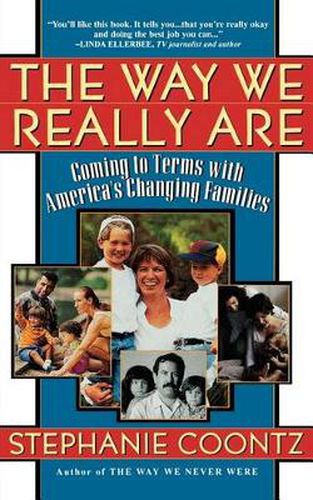Readings Newsletter
Become a Readings Member to make your shopping experience even easier.
Sign in or sign up for free!
You’re not far away from qualifying for FREE standard shipping within Australia
You’ve qualified for FREE standard shipping within Australia
The cart is loading…






Stephanie Coontz, the author of The Way We Never Were, now turns her attention to the mythology that surrounds todays familythe demonizing of untraditional family forms and marriage and parenting issues. She argues that while its not crazy to miss the more hopeful economic trends of the 1950s and 1960s, few would want to go back to the gender roles and race relations of those years. Mothers are going to remain in the workforce, family diversity is here to stay, and the nuclear family can no longer handle all the responsibilities of elder care and childrearing. Coontz gives a balanced account of how these changes affect families, both positively and negatively, but she rejects the notion that the new diversity is a sentence of doom. Every family has distinctive resources and special vulnerabilities, and there are ways to help each one build on its strengths and minimize its weaknesses. The book provides a meticulously researched, balanced account showing why a historically informed perspective on family life can be as much help to people in sorting through family issues as going into therapyand much more help than listening to todays political debates.
$9.00 standard shipping within Australia
FREE standard shipping within Australia for orders over $100.00
Express & International shipping calculated at checkout
Stephanie Coontz, the author of The Way We Never Were, now turns her attention to the mythology that surrounds todays familythe demonizing of untraditional family forms and marriage and parenting issues. She argues that while its not crazy to miss the more hopeful economic trends of the 1950s and 1960s, few would want to go back to the gender roles and race relations of those years. Mothers are going to remain in the workforce, family diversity is here to stay, and the nuclear family can no longer handle all the responsibilities of elder care and childrearing. Coontz gives a balanced account of how these changes affect families, both positively and negatively, but she rejects the notion that the new diversity is a sentence of doom. Every family has distinctive resources and special vulnerabilities, and there are ways to help each one build on its strengths and minimize its weaknesses. The book provides a meticulously researched, balanced account showing why a historically informed perspective on family life can be as much help to people in sorting through family issues as going into therapyand much more help than listening to todays political debates.